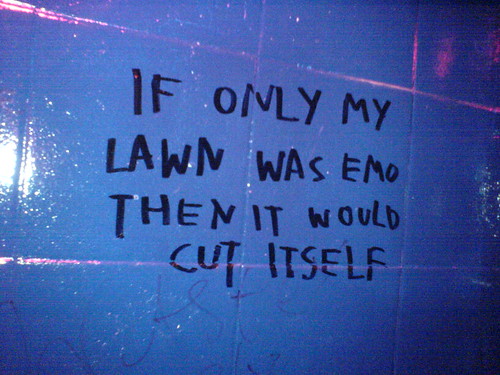It's been hard to measure the impact of the recession on music since our industry has been in a state of change for the past decade.
I had the pleasure of meeting Darren Shirlaw last week. Apart from the amazing coaching business he has established, he's a bit of a mathematician with an eye on the economy. He predicted our recent recession, and is quite convincing in his argument that we are heading for a double dip.
This isn't great news for independent artists or labels. If you thought it was difficult to keep afloat in the past 18 months, consider how tough this will be when the shock hits pockets for a second time. Even though consumer spending is unpredictable during a recession, no one can guarantee what would happen in the case of a second subsequent market crash.
Shirlaw recommends three areas of focus for any business to ensure you not only stay strong during the dip, but come out fighting. Here they are framed through a new music industry lens:
Risk Management
Something smart businesses do at any stage of operation, risk management means you understand the potential risks facing you mapped against their likely impact. To many artists - especially those that just focus on the creative output of their career, this process is probably a completely foreign concept.
From personal experience, had Gaymonkey conceived of the possibility our physical distributor was going to go bankrupt 2 years ago it may have stopped us putting all our eggs in one basket, and allowed us to bounce back faster.
Artists should look at their business and consider the risks ahead for the next 18 months. The threat to revenue, live shows scheduled, partnerships in development. Get them out on paper, and categorise them into low/medium/high risk. Then make strategies to minimise the risk, and as alternate plans, or even appropriate insurance, for when things don't quite work to plan. Write it all down down - you might need them sooner than you think.
Capability
On the surface this sounds like something that only big business would have to deal with. It centres around how capable your business is at output - ie, does the business have the ability, skills and talent to deliver. Those that do can upskill their workforce, or keep the infrastructure working to weather any storm.
An artist might believe that their capability rests in their ability to deliver great music. Thats true - but that is a given - if you cant produce amazing music, you won't be in business. Capability here means do you have the skills to carry you through the challenges of a downturn? Are you able to manage all aspects of your business - even your finances or legal arrangements - if the market turns and you need to cut costs? Do you have the skills to negotiate in tough market conditions?
The great thing about capability is that its up to you to learn and take responsibility. And once you have those skills, they are yours - not matter what the economic conditions are.
Innovation
The best of the bunch, innovation is something that no musician can argue against. All creatives are great at innovation - and within the music industry these days, innovation is what we need more of. Its not just innovation around your music, but across all areas of your business - from how you market, distribute, connect with your community, and perform.
Critically it is about not wasting resources - finding new methods that cost less but have higher value (and lower impact on the environment, of course). The recession teaches us about attracting loyal customers and then keeping them. Innovative artists will be the ones that do this in the most remarkable ways.
Three areas for all artists to consider. What is clear - and as I have argued time and time again - is that artists need to prepare by thinking like smart businesses. Having a sustainable career in volatile times is possible - it just involves developing your strategy now.
Image by Banksy, of course.























